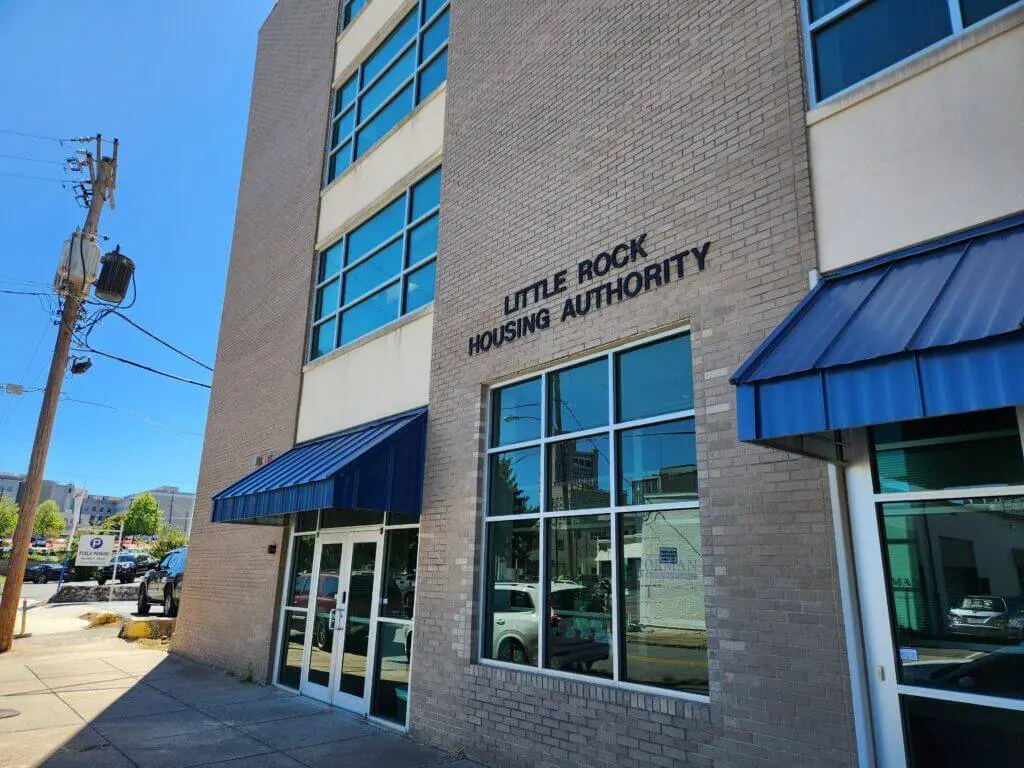Recently updated on August 5th, 2024 at 11:29 pm
Mayor Frank Scott Jr. asked the agency’s five-member board to resign; three who refused will face public hearing and a vote on whether to remove them next week.
Little Rock’s federally funded public housing authority board plans to address the wide range of concerns federal officials raised in August regarding the agency’s management, according to a letter from the board chairman to the local U.S. Department of Housing and Urban Development field office.
The five-member board of commissioners overseeing the Housing Authority of the City of Little Rock, known as the Metropolitan Housing Alliance, is “ready to address all the issues” and develop “a long term and comprehensive plan” to fix management problems that have put MHA’s future into question, Chairman Lee Lindsey wrote to HUD field office director Anthony Landecker.
Lindsey sent the note on Sept. 14, the deadline of the 30-day window Landecker gave MHA to respond to his Aug. 16 letter to the board, asking for a “self-diagnosis” of the sources of problems HUD highlighted in a recent assessment of MHA.
The board will address “audits, finances, expenses, and employment restructures” at HUD’s suggestion, Lindsey wrote, but the one-page letter does not provide detailed plans.
The required response to Landecker came just after Lindsey and two other board members, Leta Anthony and Kerry Wright, refused to resign at the request of Little Rock Mayor Frank Scott Jr.
Last week, Scott scheduled a public hearing for Sept. 26, when the city board of directors will vote on whether to remove Lindsey, Anthony and Wright. Scott had requested the entire board’s resignation on Sept. 12, with a few members of the city board of directors in agreement, the Arkansas Democrat-Gazette reported.
The move is Scott’s first attempt to remove the MHA board after being asked to do so in recent years by agency employees.
Wright is the board’s newest commissioner, confirmed by the city board of directors in March. Anthony is in her second five-year term, which ends next year, and Lindsey is in his first term, which ends Sept. 30.
The MHA board reappointed Lindsey and Commissioner Branndii Peterson, whose term also ends Sept. 30, at its Aug. 23 meeting.
Peterson now will step down at the end of the month, the Democrat-Gazette reported last week.
The fifth commissioner, Louis Jackson, said at the August meeting that he would resign in the near future.
The board will meet Thursday for its regularly scheduled monthly meeting.
MHA is Arkansas’ largest federally-funded public housing agency and provides rental assistance to about 8,000 low-income people in Little Rock.
Reports of deficiencies at the agency have caught the attention of U.S. Rep. French Hill, a Republican representing Arkansas’ 2nd Congressional District, who contacted HUD earlier this month, asking the department to ensure that his Little Rock constituents can retain their housing if MHA is financially insolvent.
History of raised alarms
An Aug. 9 report from HUD labeled MHA “troubled” after surveying its physical condition, financial condition, management and use of its capital fund.
The federal housing agency assigns the “troubled” designation to housing authorities that score below 60 points out of a possible 100. MHA scored 40 points, with the financial and management categories receiving zero out of 25 points each. The agency previously received the “troubled” label after scoring 57 points for the fiscal year 2017 assessment.
Landecker wrote in the Aug. 16 letter that MHA “must determine if recovery is feasible or if alternative options for affordable housing should be considered.”
If HUD allows MHA to continue providing public housing, MHA must recover half of its current score on its next assessment from HUD and raise its assessment score to at least 60 out of 100 possible points on the next full fiscal year assessment.
HUD has consistently considered MHA’s management subpar in its reviews of the agency, awarding it no more than 15 out of 25 points every year from 2011 to 2018, the Arkansas Democrat-Gazette reported in 2021. Kenyon Lowe, the board chairman at the time, said the problems had been remedied.
In June 2021, MHA then-executive director Nadine Jarmon sent a 161-page complaint about the board to both Scott and Landecker. The memo alleged widespread wrongdoing, including unnecessary and unauthorized spending, by the five commissioners and requested their removal.
The board suspended Jarmon with pay shortly after she filed the complaint and fired her two months later. She was the housing authority’s third of five executive directors in less than three years.
Exactly a year before Jarmon requested the board’s removal, a group of anonymous MHA employees sent a letter to Scott’s office with the same request, alleging “great incompetence” and excessive involvement in the agency’s day-to-day business.
According to Arkansas law, a local governing body may remove a housing authority board member “for inefficiency or neglect of duty or misconduct in office” with a majority vote.
The vote can only occur after the commissioner is presented with the charges against him or her at least 10 days before the hearing, and the commissioner must have the opportunity to present his or her case “in person or by counsel,” the law states.
After receiving the anonymous letter in 2020, Scott said that he would initiate the process of removing the board, but he did not follow through. He said in 2021 that the lack of supporting documentation made the allegations difficult to investigate. He also said the city would wait to take action until HUD finished investigating Jarmon’s complaint.
HUD’s Departmental Enforcement Center was “unable to substantiate the allegations” in Jarmon’s complaint, according to an April 2022 letter to the board.
However, the DEC had already been reviewing samples of two and a half years of MHA’s contracts and financial documents, and the review found that MHA failed to comply with federal, state and its own purchasing rules for years, according to the ensuing HUD report.
Other allegations and conflicts
In an Aug. 22 letter to Landecker acknowledging receipt of the Aug. 16 memo, Lindsey suggested that the Arkansas Democrat-Gazette intended “to portray the Board in an unfavorable light” in its reporting on Landecker’s letter. The Arkansas Advocate obtained both letters via Freedom of Information Act requests.
Similarly, Lowe and Anthony both claimed in 2021 that the complaints from Jarmon and other former MHA employees were a “conspiracy” against the board.
Lindsey again claimed there was “something else at work” regarding scrutiny the board has received, according to a Sept. 13 letter that the Democrat-Gazette reported.
“Commissioners have… provided methods of increasing funding and the liquidating of unuse[d] assets as well as the restructuring of the agency,” Lindsey wrote. “This has been met with accusations of bullying and being in the day to day operations of the business.”
He added that the board “filed a complaint of no confidence” against Landecker “without fanfare” and “without the media.”
He also claimed longstanding problems within MHA’s finance department have prevented the agency from submitting the financial documents to entities that have requested them.
The failure to submit required financial information to HUD in a timely manner contributed to the financial and management scores of zero in the Aug. 9 report, Landecker told the board.
Additionally, the housing authority did not submit “audited financial statements from 2019 onward” to the Quality Assurance Division within HUD’s Office of Housing Voucher Programs, according to a report issued Sept. 1.
The report, also obtained by the Advocate via a public records request, flagged several “potentially disallowed” spending decisions by MHA. The agency has until the end of the month to provide the Quality Assurance Division with a corrective action plan.
The Little Rock accounting firm FORVIS, formerly BKD, usually audits MHA’s finances every year but has still not completed the 2019 audit, housing authority board members said at a special meeting on Sept. 6.
FORVIS paused the audit in 2021 due to HUD’s investigation of Jarmon’s complaint against the board, but it could not resume the audit this year because MHA did not provide several documents, including meeting minutes, financial statements, communications with HUD and Jarmon’s 161-page memo, among other things, according to an Aug. 30 letter from the firm.
The board voted on Sept. 6, at Landecker’s recommendation, to provide the firm with the requested documents.
SUPPORT NEWS YOU TRUST.
Excerpts or more from an article that was originally published on Arkansas Advocate is included in this post under a Creative Commons License.








